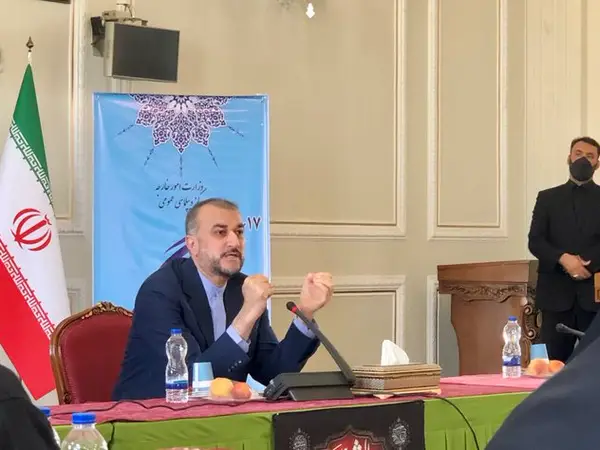Discussions in Tehran on a European text aimed at reviving the 2015 Iran nuclear deal are at the “highest level,” the foreign ministry spokesman said Monday.
“We are close to an agreement provided that Iran’s red lines are respected,” Nasser Kanaani told his weekly briefing. “Relative progress has been achieved, but these advances have not fully satisfied Iran’s legal demands, and we have other expectations from the other side…”
Kanaani said consultations “at the highest level” had taken place and were “continuing.” Decisions over the nuclear program rest with the Supreme National Security Council (SNSC), which has around 23 members, although are likely to be shaped by more informal meetings with Ali Khamenei, the supreme leader.
Although Iran may soon send its repsonse to the EU, it does not mean a final agreement. Iran statements show that Tehran is still determined to haggle for more concessions.
The official news agency IRNA cited Friday a “senior Iranian diplomat” that a European Union text presented August 8 by Enrique Mora, who has coordinated 18-month talks with world powers including the United States, “can be acceptable if it provides assurances."
August 15 deadline?
The Wall Street Journal August 9 cited “two people with knowledge of the discussions” suggesting the EU had set an August 15 deadline for an Iranian response, although the newspaper also quoted Mikhail Ulyanov, Russia’s ambassador to the International Atomic Energy Agency saying it wasn’t for the EU to issue ultimatums.
Reuters news agency Friday quoted a European official suggesting an answer was expected from Iran within “a very, very few weeks.” A tweet from Iranian journalist Sara Massoumi Monday reported that Iran would respond by the end of Monday, August 15.
While European and American officials presented the Mora document as a “final text,” Iran reacted to it rather as a set of suggestions for restoring the 2015 nuclear agreement, the JCPOA (Joint Comprehensive Plan of Action). IRNA called it “some ideas concerning some of the remaining issues.”
As Iranian and US negotiations left Vienna August 8 after the most recent round of nuclear talks, Josep Borrell, the EU foreign policy chief, tweeted that while “what can be negotiated has been negotiated” and that “behind every technical issue and every paragraph lies a political decision that needs to be taken in the capitals.”
Tehran Denies Rushdie Role
Opponents of the JCPOA in Washington seized on Friday’s attack on writer Salman Rushdie as further justification for breaking off talks with Iran, while some commentators in Iran have detected a plot designed to undermine efforts to revive the JCPOA.
Iran Monday rejected any connection with the stabbing of the author of the 1988 novel The Satanic Verses, deemed blasphemous by some Muslims. Suspect Hadi Mattar has denied a charge of attempted murder.
A statement Sunday from Antony Blinken, the US Secretary of State, on the Rushdie assault made no reference to the JCPOA talks: “Iranian state institutions have incited violence against Rushdie for generations, and state-affiliated media recently gloated about the attempt on his life. This is despicable.”
